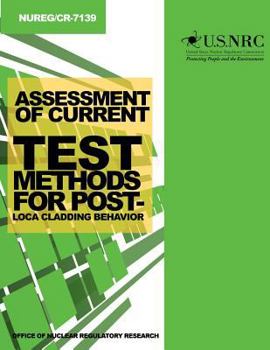Assessment of Current Test Methods for Post-LOCA Cladding Behavior
The purpose of this document is to support the technical basis for the choice of test methods to assess fuel-rod cladding behavior following a loss-of-coolant accident (LOCA). For non-deformed cladding regions with uniform levels of hydrogen content and oxidation, and for irradiated cladding, the ring compression test (RCT) has been selected. The four-point bend test (4-PBT) has been selected for evaluating the performance of ballooned and ruptured regions of a fuel rod in LOCA analysis. The technical basis is founded on the results of the NRC's LOCA research program, which was designed to measure the mechanical behavior of both non-deformed and ballooned and ruptured cladding following LOCA conditions. Integral LOCA tests were conducted at Argonne National Laboratory and Studsvik Laboratory in Sweden. The Japanese Atomic Energy Agency (JAEA) has also performed LOCA integral experiments. The results and observations of these experimental programs have been combined to develop considerations regarding the impact of oxidation and hydrogen content on the mechanical behavior of ballooned and ruptured cladding following LOCA conditions.
Format:Paperback
Language:English
ISBN:1499619057
ISBN13:9781499619058
Release Date:May 2014
Publisher:Createspace Independent Publishing Platform
Length:86 Pages
Weight:0.49 lbs.
Dimensions:0.2" x 8.5" x 11.0"
Customer Reviews
0 rating





